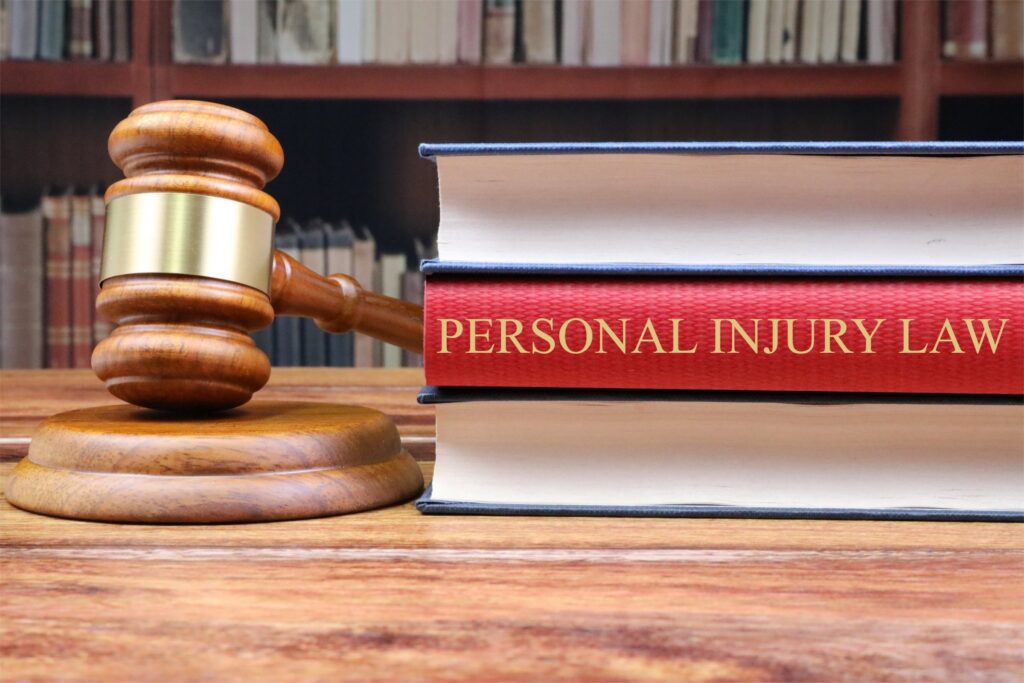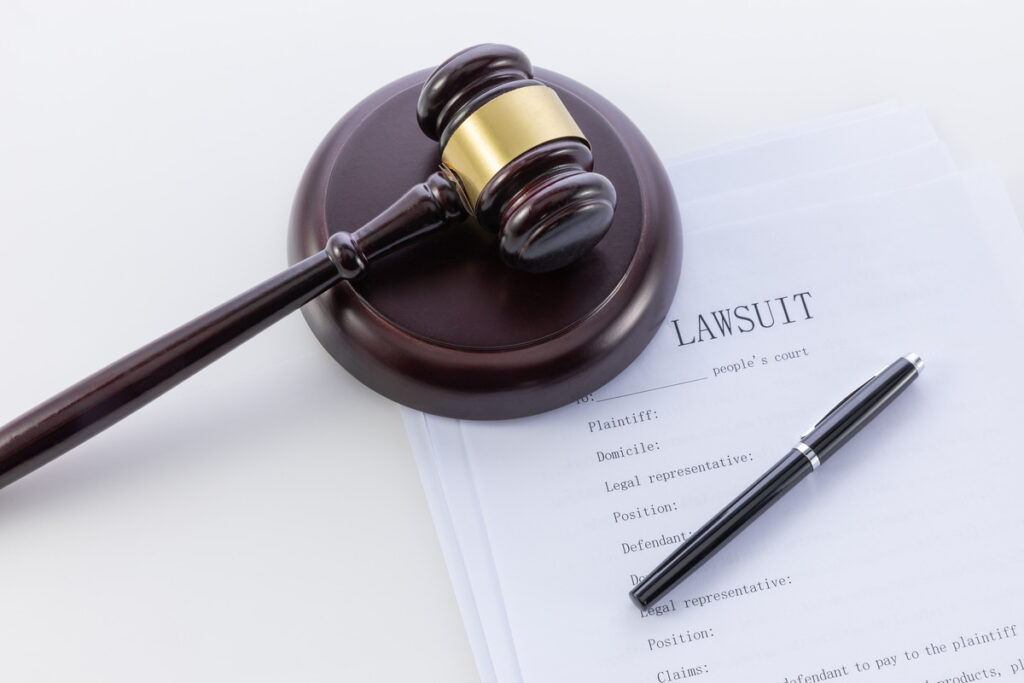Is Medical Practice a Personal Injury Claim? Understanding the Legalities
Introduction
When people suffer harm due to someone else’s actions or negligence, they often wonder if they have grounds for a personal injury lawsuit. In medical care, many ask, “Is medical practice a personal injury lawsuit?” Understanding how medical practice—”medical malpractice”—fits within the personal injury landscape can help you decide whether you need legal assistance and how best to proceed. This article will guide you through the fundamentals of medical malpractice, how it is categorized under personal injury law, what you need to prove to bring a claim, and much more. Before diving into these critical aspects, here is a quick overview of what you can expect to learn:
Table of Contents
- Defining Personal Injury and Its Scope
- Medical Practice vs. Medical Malpractice
- How Medical Malpractice Fits into Personal Injury
- Key Elements of a Medical Malpractice Case
- Five Common Questions About Medical Malpractice
- Statute of Limitations and Other Legal Nuances
- Damages in a Medical Malpractice Lawsuit
- Why You Need an Attorney
- Conclusion and Call to Action
In the following sections, we will clarify the connection between medical malpractice and personal injury, address common legal considerations, and help you understand the steps typically involved in pursuing a claim. Let’s explore everything you need to know about “Is medical practice a personal injury lawsuit?” so you can make an informed decision regarding your legal options.
Defining Personal Injury and Its Scope
To determine if medical practice is a personal injury lawsuit, it’s essential to begin with a firm understanding of what personal injury law entails. Personal injury law is a branch of civil law designed to protect people injured or harmed by another individual or entity’s negligence, recklessness, or intentional actions. When someone breaches their duty to act reasonably and causes harm, the injured party can usually seek compensation (known as “damages”) to cover their losses.

Types of Claims Under Personal Injury Law
- Car accidents: If a driver’s negligent behavior leads to an accident and causes injuries to another motorist, passenger, or pedestrian, the injured victim can pursue a personal injury claim.
- Slip-and-fall accidents: Property owners have a responsibility to ensure safe conditions. When they fail to do so, and a guest is injured, the guest may file a personal injury lawsuit.
- Dog bites or animal attacks: Owners are often held accountable if their animal attacks or injures another person.
- Defective products: Manufacturers can be held liable if their products are inherently faulty and lead to consumer injuries.
- Workplace accidents: While many are processed through workers’ compensation, there are scenarios where a personal injury claim can arise, especially if a third party is involved.
- Medical malpractice: This occurs when a healthcare provider’s professional negligence causes harm to a patient.
From the list above, you can see that medical malpractice indeed falls under the umbrella of personal injury law. In other words, it is typically classified as a personal injury claim with special rules and criteria.
Medical Practice vs. Medical Malpractice
It’s important to distinguish between general “medical practice” and “medical malpractice.” When we talk about “medical practice,” we’re referring to the exercise of healthcare functions—such as diagnosing patients, prescribing treatments, and performing surgical procedures. “Medical malpractice,” on the other hand, arises when a healthcare provider deviates from the accepted standard of care and injures a patient through negligence or omission.

Understanding the Standard of Care
In most jurisdictions, doctors and other healthcare professionals are held to a standard of care that a reasonably competent professional in the same field, under similar circumstances, would provide. When a healthcare professional’s action (or inaction) falls below that standard of care, and a patient is harmed directly, the patient may be entitled to pursue a malpractice claim.
Examples include:
- Misdiagnosis or delayed diagnosis resulting in a worsening medical condition.
- Surgical errors include operating on the wrong site or leaving instruments in the patient’s body.
- Medication errors include prescribing the wrong medication or dosage.
- Birth injuries that could have been prevented with proper medical attention.
- Failure to obtain informed consent is when the patient is not adequately advised about the risks.
Hence, “Is medical practice a personal injury lawsuit?” can be misleading if you only think of everyday healthcare practices. The point is not whether every procedure or appointment can lead to a personal injury lawsuit but rather whether a healthcare provider’s negligence caused actual harm to the patient.
How Medical Malpractice Fits into Personal Injury
Legally, medical malpractice is treated as a subset of personal injury law because it hinges on negligence—similar to how car accidents or slip-and-falls are based on negligence. The difference is that medical malpractice involves a specialized set of standards and often requires experts in the medical field to testify about whether those standards were met or violated.
The Importance of Expert Witnesses
One of the unique aspects of a medical malpractice claim is that you usually need one or more expert witnesses (often medical professionals) to testify about what a competent doctor (or nurse, surgeon, etc.) would have done under the same circumstances. This testimony helps to establish the following:
- The accepted standard of care in that specific medical setting.
- How did the healthcare provider in question depart from that standard?
- How did that breach cause or contribute to the patient’s injury?
Because of these specialized requirements, the litigation process for medical malpractice can be more complex, time-consuming, and expensive than that for other personal injury lawsuits.
Key Elements of a Medical Malpractice Case
To further answer the question, “Is medical practice a personal injury lawsuit?” we need to clarify what a plaintiff (the injured party) must prove to bring a medical malpractice claim successfully. Generally, four elements must be established:

- Duty of Care: The healthcare provider owes you a duty of care. This is typically established by showing a doctor-patient or similar provider-patient relationship.
- Breach of Duty: The provider failed to meet the standard of care. They acted (or failed to act) in a way that a reasonable professional in the same specialty would not have.
- Causation: The breach caused your injury. You must show a direct link between the provider’s negligence and the harm you suffered.
- Damages: You have measurable damages (financial, physical, or emotional) resulting from that injury—such as medical bills, lost wages, pain and suffering, and more.
These elements might sound straightforward, but proving each one can be challenging. That’s especially true for causation because you must demonstrate that the injury wouldn’t have occurred if the provider had acted differently. Medical records, expert testimony, and other pieces of evidence become critical at this stage.
Five Common Questions About Medical Malpractice
In the broader conversation about ” Is the medical practice a personal injury lawsuit? ” specific queries often arise. Let’s address five of the most frequent questions patients and their families ask.
Question 1: If the medical outcome is terrible, do I always have a malpractice case?
Answer: Not necessarily. A negative or unexpected medical outcome is insufficient to bring a successful malpractice claim. You must show that the provider deviated from the standard of care. In many scenarios, poor outcomes can occur even when the doctor did everything correctly. Complications, risks, and unforeseeable factors sometimes arise despite competent treatment.
Question 2: How do I know if my healthcare provider breached the standard of care?
Info: Determining a breach usually requires thoroughly reviewing your medical records by qualified experts in the same field. They will identify whether a reasonably competent doctor (or other health professional) would have acted differently in diagnosing or treating you. A medical malpractice attorney often assists in securing these expert reviews.
Question 3: What if multiple providers contributed to my injury?
Answer: Medical malpractice claims can be complex, and multiple parties can be liable if more than one provider contributed to your harm. This could include doctors, nurses, anesthesiologists, hospitals, and even pharmaceutical companies in some cases. Each party’s degree of fault is typically apportioned based on how their conduct contributed to the injury.
Question 4: Do I have to pay for expert witnesses?
Info: Expert witnesses are typically paid for their time and expertise. Their fees can be substantial, so many attorneys working on a contingency fee basis will initially shoulder them. If you win or settle, those costs are recovered from the final award. If you don’t recover, many attorneys will not ask you to pay back those costs—though policies can vary from firm to firm.
Question 5: Can I pursue a claim if I didn’t immediately realize the injury?
Answer: In some states, the statute of limitations for medical malpractice begins when the injury is discovered or should have been discovered through due diligence. This “discovery rule” allows you to file a claim even if you only later discovered that your injury was linked to a medical provider’s negligence. However, there can still be an overall limit—often referred to as a “statute of repose”—that prevents claims after a certain number of years, regardless of when you discovered the injury.
Statute of Limitations and Other Legal Nuances
A critical factor to consider when asking, “Is medical practice a personal injury lawsuit?” is the applicable statute of limitations. This legal time limit dictates how long you have to file a claim.

Typical Time Frames
- General personal injury claims are often filed between one and three years after the incident (though this varies widely by jurisdiction).
- Medical malpractice claims Often parallel personal injury timelines, but each state can set unique rules. Some states have shorter time frames for medical malpractice or more stringent notice requirements.
Failing to file within the statute of limitations can result in losing your right to seek compensation. It’s, therefore, crucial to consult with an attorney as soon as possible if you suspect malpractice. Your lawyer can help clarify the deadlines and file all necessary paperwork correctly.
Notice of Claim Requirements
Some states and certain types of medical providers (such as public hospitals or government-run healthcare facilities) might require you to file a notice of claim before you can initiate a lawsuit. This is a heads-up to the provider, allowing them to resolve the issue outside of court. Missing the notice deadline can also jeopardize your case.
Other Legal Hurdles
- Certificate of merit: In numerous states, you must file a certificate of merit from a qualified expert early in the lawsuit, attesting that your claim has a reasonable basis.
- Damage caps: Some jurisdictions cap the amount of non-economic damages (like pain and suffering) that a plaintiff can recover in medical malpractice cases.
These factors complicate medical malpractice claims in ways not seen in other personal injury cases. Consulting with a legal professional is key to successfully navigating these rules.
Damages in a Medical Malpractice Lawsuit
Once you’ve determined that your claim meets the criteria for a malpractice lawsuit, your potential compensation—often referred to as “damages”—comes into play. Damages fall into several categories:

- Economic Damages: These cover tangible financial losses like hospital bills, costs for ongoing treatment or rehabilitation, lost wages, and loss of future earning capacity.
- Non-Economic Damages: These address intangible losses, such as pain and suffering, emotional distress, and reduced quality of life.
- Punitive Damages: In rare instances, if a provider’s actions were reckless or malicious, courts may award punitive damages to punish the wrongdoer and deter similar conduct.
Proving Damages
You must produce evidence to substantiate every type of damage you claim. This can include:
- Medical bills and receipts to show past costs.
- Expert projections of future medical expenses.
- Pay stubs or employer records to show lost income.
- Psychological evaluations documenting emotional distress.
- Testimonies from friends and family about how the injury has affected your daily life.
A legal team’s role is crucial here. They gather and present evidence in a way that clearly articulates the full scope of your losses.
Why You Need an Attorney
If you suspect you’re a medical malpractice victim, seeking experienced legal counsel early in the process is essential. Here’s why:
- Case Evaluation: An attorney can quickly review the facts of your case, consult with medical experts, and determine whether you have a viable claim.
- Navigating Complex Procedures: Malpractice claims involve statutes of limitations, notice requirements, expert affidavits, and more. A lawyer ensures you don’t miss critical deadlines.
- Collecting Evidence: Your attorney can obtain and review medical records, identify key witnesses, and work with medical experts to prove a breach in the standard of care.
- Negotiating with Insurance Companies: Insurance providers representing medical professionals often have vast resources to minimize or deny claims. A lawyer is your advocate against these strategies.
- Litigating if Necessary: If negotiations fail, your attorney can represent you in court, presenting a compelling argument to a judge or jury.
Medical malpractice litigation is a niche within personal injury law that demands specialized expertise. Working with a dedicated attorney increases your chances of a successful outcome and allows you to focus on healing and regaining normalcy.
Conclusion and Call to Action
So, is medical practice a personal injury lawsuit? In essence, medical malpractice—when a healthcare professional’s negligence causes you harm—is generally pursued as a type of personal injury claim. However, it requires meeting more stringent standards, working with medical experts, and navigating various legal rules that differentiate it from a typical personal injury case, like a car accident or slip-and-fall.
Successfully pursuing a medical malpractice claim involves proving that a duty of care was owed, that the healthcare provider breached that duty, and that this breach directly caused you harm, resulting in actual, compensable losses. Because of the complexity and the need for specialized knowledge, the guidance of an experienced attorney is indispensable. You’ll need someone in your corner who understands both the legal intricacies and the medical nuances involved.
If you or a loved one believes you may have been a victim of medical malpractice, it’s crucial to act swiftly. Consulting an experienced lawyer helps protect your rights, ensures you adhere to legal deadlines, and gives you the best chance at recovering fair compensation for your injuries.

At The Law Office of Bobbie Young, we are dedicated to advocating for victims of medical negligence. We fully understand the complexities of medical malpractice and the emotional toll such cases can take. Our team of seasoned attorneys will work tirelessly to secure the compensation you deserve while you focus on your health and recovery.
If you’ve asked yourself, “Is medical practice a personal injury lawsuit, and do I have a valid claim?”—don’t wait any longer. Contact us today to schedule your consultation.
Let us help you navigate the legal process, gather the necessary evidence, and fight for the justice you deserve. Reach out to The Law Office of Bobbie Young right now and take the first step toward rebuilding your life with the support and legal expertise you need.
Let us help you navigate the legal process, gather the necessary evidence, and fight for the justice you deserve. Reach out to The Law Office of Bobbie Young right now and take the first step toward rebuilding your life with the support and legal expertise you need.
Your Legal Solution Starts Here
Clear, practical legal advice you can count on when it matters most